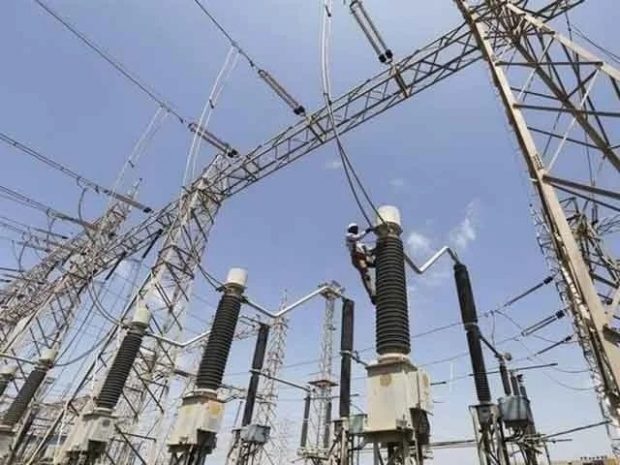Pakistan: New version of old story of Ali Baba and 40 Thieves

By Nasir Aijaz
The AsiaN Representative
ISLAMABAD: ‘Ali Baba and the Forty Thieves’ is an Arabic folktale, the most popular and widely read and retold across the world including Pakistan, especially for children. According to the story, as I read in my childhood, Ali Baba was a poor woodcutter and an honest person who discovers the secret of a thieves’ den, and enters with a magic phrase. The thieves try to kill Ali Baba, but he somehow foils their plot with the help of his faithful slave-girl.
I’m sure the readers are well aware of the Arabic folklore therefore I won’t bother them anymore with detailed old story. What I’m going to share here is the modern day story of ’40 Thieves of Pakistan’, as have been labeled by the people on social media, making this phrase popular once again. We, in Pakistan, have scores of big thieves, plundering the national wealth, but this story pertains to owners of forty private sector power producing companies of the country named as ‘Independent Power Producers’ (IPPs) in official documents, who were awarded contracts to produce and supply electricity to meet the shortfall of power, but have been receiving billions of dollars from the successive governments over the years for their full generation capacity, but supplying less electricity.
Here is an overview of the Scam of Pakistan’s Private Power Producers:
In recent years, Pakistan’s energy sector, particularly the involvement of private power producers (IPPs), has come under intense scrutiny due to allegations of malpractices, corruption, and irregularities. These issues have not only impacted the financial health of the national exchequer but have also affected the country’s overall energy security and affordability.
The Independent Power Producers (IPPs) were introduced in Pakistan during the 1990s as part of the government’s efforts to address chronic power shortages and attract foreign investment. By offering power generation contracts under various frameworks, the government aimed to boost energy production, diversify sources, and enhance competition in the sector. While some IPPs have contributed positively to the energy mix, a significant number have been criticized for dubious practices.
Independent Power Producers often operate under long-term contracts, which can include provisions for guaranteed returns. Reports have indicated that these contracts feature inflated costs for electricity generation, leading to excessive pricing for consumers. The government, bound by these contracts, has struggled to negotiate more favorable terms or renegotiate existing ones, but failed miserably.
There have been widespread allegations of lack of transparency in bidding, contract negotiations, and operational practices of many IPPs. The absence of a robust regulatory framework has allowed dubious dealings to flourish, with many contracts awarded without proper competitive bidding.
Many IPPs are believed to have connections with powerful political figures, raising concerns about favoritism and corruption, especially during the contract awarding process. Such political entanglements have led to further mistrust among the public regarding the motivations behind specific deals.

The citizens have reported that despite high tariffs paid to IPPs, the quality and reliability of the electricity supplied have not improved correspondingly. This has raised questions about the operational efficiency of these private producers.
The alleged malpractices surrounding IPPs have significant implications for Pakistan’s economy and its citizens. High electricity tariffs have culminated in rising living costs, with lower-income households being disproportionately affected. The energy crisis not only hampers industrial growth but also discourages foreign investment, thereby stunting economic progress. Moreover, the fiscal burden on the government, arising from payments to IPPs, has diverted funding from essential public services such as education and healthcare, exacerbating social inequalities.
In response to growing public discontent and the financial strain posed by IPPs’ agreements, the Pakistani government has reportedly initiated audits and investigations into the operations of IPPs, with no outcome. Some attempts have reportedly been made to renegotiate contracts and establish a more rigorous regulatory framework to ensure transparency and accountability, but the results are unknown.
The situation involving Pakistan’s private power producers is a complex interplay of economics, politics, and societal needs. While IPPs were initially envisioned as a solution to the energy crisis, many of them have instead contributed to the ongoing challenges facing the country. Addressing these issues is critical not only for improving the country’s energy landscape but also for fostering greater trust in governance and economic stability.
A few months back, Mr. Gohar Ejaz, who held the portfolio of caretaker Minister for Commerce during the interim government formed last year, raised the issue once again in a press conference revealing that 52% of these IPPs are government-owned but produce less than 50% of their installed capacity, yet consumers are charged 100% capacity payments. The remaining 48% of IPPs are owned by ‘40 Families’, operating at 50% capacity but charging consumers for full production capacity totaling 2.112 trillion Pakistani rupees in capacity payments. He claimed that this situation reflects mismanagement and corruption, leading to a breakdown of consumer trust and excessive financial burdens on the public. “The total cost per unit produced by each of these IPPs is charged to consumers,” he said.
Gohar Ejaz asserted that the “Take or Pay” contracts for 23,400 MW of IPP capacity need urgent review, cancellation, or renegotiation. He argued that consumers should only pay for the electricity supplied to the national grid, not the full installed capacity.
Following the revelation of ’40 Families’, the Pakistan’s social media resounded with the old saying of ’40 Thieves’.
In the meantime, Governor of Punjab province, Sardar Saleem Haider, who represents Pakistan People’s Party, one of the member parties of PML-N-led coalition government, also endorsed the views of former minister Gohar Ejaz in a statement saying that some of the ruling PML-N members are owners of IPPs and milking the nation.
Claiming that 42 of the independent power producing companies are owned by the ruling elite, Punjab Governor Sardar Saleem Haider demanded audit of the financial matters of all these units.
“Of these, 42 are owned by those sitting in the power corridors. All the IPPs, including these 42, must undergo a special audit to unearth corruption in them,” he said, while talking to reporters at Governor House.
“Electricity is cheaper in Bangladesh and Afghanistan than in Pakistan. The nation is suffering from the burden of inflation caused by the costliest electricity (among other factors),” he added.
Meanwhile, Punjab Industries and Trade Minister Shafay Hussain, who also belonged to another coalition party PML-Q, said independent power producers have earned more than their investments and stressed that there is no need to pay billions of rupees to IPPs in the name of capacity charges.
Despite severe criticism, the PML-N-led federal government of Prime Minister Shehbaz Sharif, has not yet come up with any policy statement on issue of IPPs, and while the media echoes with hardships faced by the masses due to high electric tariff, the ’40 IPPs’, branded as ’40 Thieves’, continue to plunder.
This is new version of old story of Ali Baba and Forty Thieves – the only difference is that the country has no Ali Baba to foil plans of 40 thieves (IPPs) and rid the masses of plunder.




